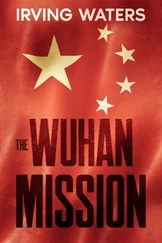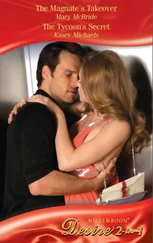Mary Waters - The Favorites
Здесь есть возможность читать онлайн «Mary Waters - The Favorites» весь текст электронной книги совершенно бесплатно (целиком полную версию без сокращений). В некоторых случаях можно слушать аудио, скачать через торрент в формате fb2 и присутствует краткое содержание. Жанр: Триллер, на английском языке. Описание произведения, (предисловие) а так же отзывы посетителей доступны на портале библиотеки ЛибКат.
- Название:The Favorites
- Автор:
- Жанр:
- Год:неизвестен
- ISBN:нет данных
- Рейтинг книги:5 / 5. Голосов: 1
-
Избранное:Добавить в избранное
- Отзывы:
-
Ваша оценка:
- 100
- 1
- 2
- 3
- 4
- 5
The Favorites: краткое содержание, описание и аннотация
Предлагаем к чтению аннотацию, описание, краткое содержание или предисловие (зависит от того, что написал сам автор книги «The Favorites»). Если вы не нашли необходимую информацию о книге — напишите в комментариях, мы постараемся отыскать её.
The Favorites — читать онлайн бесплатно полную книгу (весь текст) целиком
Ниже представлен текст книги, разбитый по страницам. Система сохранения места последней прочитанной страницы, позволяет с удобством читать онлайн бесплатно книгу «The Favorites», без необходимости каждый раз заново искать на чём Вы остановились. Поставьте закладку, и сможете в любой момент перейти на страницу, на которой закончили чтение.
Интервал:
Закладка:
“I had a choice to make,” Mrs. Kobayashi said. “I chose wrongly. I’ve regretted it all my life.”
Mrs. Nishimura said nothing. She could not.
Mrs. Kobayashi began to talk-about wartime, about the occupation. She spoke quietly and steadily, not requiring her daughter to answer.
She talked of watching her grow up over the years. “Sometimes, when you were a little girl,” she said, “I’d hear you running past the house and you’d be sobbing, you’d call out, ‘Mama,’ and it took everything I had to stay put while you ran home to somebody else…”
With one part of her brain Mrs. Nishimura was taking in every word, knowing she would sift and resift through this for years to come.
But now that the moment had come, she found she couldn’t respond. That’s right, she kept thinking, you chose wrongly. War or no war, no one made you do it. It was your own choice. For the second time today, she felt a rise of anger.
But it wasn’t the sudden, wildfire anger of before. A legitimate space had been cleared, permission had been given, and now it was widening out, claiming its rightful territory with a sureness that felt like luxury. Her mother’s gentle remorse incited it even more, like an old-fashioned housewife coaxing the hearth with a paper fan and a bamboo blowpipe.
“At the time, I thought it was the right thing to do,” Mrs. Kobayashi was saying. Mrs. Nishimura had occasionally wondered if there was a private story behind that official version. Did people really offer up their children because of altruism? But of course they did. The history of Japan was one long story of sacrifice for the common good. Mrs. Nishimura understood duty. But a tiny part of her, the selfish part left over from childhood, still clung to the irrational question: How could you give me up? There was simply no answer for a question like that.
“I’ve always wanted to talk to you about it,” Mrs. Kobayashi said. “All these years, I’ve wanted to ask your forgiveness.”
It was unfair. Mrs. Nishimura wasn’t the one who had chosen wrongly. But now, at the peak of her resentment, she had to give absolution. She couldn’t do it. She wasn’t ready.
And now the full extent of her loss washed over her, all the self-pity she had never allowed herself. Like a wave, it crested. Her windpipe squeezed shut. She felt her face contort in the moment before tears came.
“Ma-chan, Ma-chan.” Her mother sounded as if she, too, was crying. Mrs. Nishimura couldn’t see; her eyeglasses had fogged up. She pulled them off with one hand and wiped at her eyes with the other. She could smell her own tears, a scent as primordial as the wet earth and rain.
She felt her mother stroking her back over and over, her hand warm through the thin cotton of her blouse. The comfort of it made her feel like crying forever. But eventually her sobs subsided. They stood side by side, gazing out at the rain falling on the hydrangea bushes and the sodden black planks of the fence.
“The whole time I was pregnant with Yoko, I was terrified.” Mrs. Kobayashi’s voice was faraway and musing. “But the second time, when I knew I was pregnant with you, I wasn’t afraid at all. I remember saying to your father when we left the doctor’s office, ‘I’m so happy. I’m really looking forward to having this one.’”
Mrs. Nishimura would treasure these words for years to come.
chapter 34
That night, Mrs. Kobayashi had a recurring nightmare. She was running lost through empty streets, searching in vain for the bomb shelter where everyone else was hiding. The streets were dilapidated, with ghostly forms floating in and out of slatted wooden doorways.
Mr. Kobayashi shook her awake, and as she came to consciousness she heard her own high-pitched moaning. “You were dreaming,” he said.
For a long time afterward, she lay listening to the rain splash against the cement floor of the laundry area. She thought of other nightmares she’d had over the years. More than once she had dreamed Shohei was outside in the night, standing silent in the lane. She couldn’t see him but she knew, as one does in dreams, that he was wearing a white suit like a Cuban musician. In her dream she would scream out, “Take me with you! Please! Don’t leave me here!”
Many times she had woken in the dark and realized, as if her brain was in slow motion, that she had given her child away.
Nighttime reminded her that life, at its core, was fraught with danger.
As soon as Kenji Kobayashi had returned from Manchuria, he had come to the Asaki house with his baby boy. Mrs. Kobayashi avoided his eager, hopeful eyes. She had always known, in a vaguely scornful way, that he carried a secret torch for her. But she felt no respect or admiration. He was a charming ne’er-do-well, a wild card, which appealed to some women but not to her. And he was short. She would never feel safe and protected again, being married to a man no taller than herself.
“Look at the little darling!” cooed Mrs. Asaki, cradling Teinosuke in her arms. “Look, Yo-chan. This is your baby brother.”
They sat down to a simple meal of noodles and broth, garnished with nothing but seven-spice, chopped chives from their garden, and three slices each of hard-boiled egg. “There’s no meat,” said Mrs. Asaki. “I’m sorry…”
“It tastes fine,” her brother insisted. “It tastes like Japan.” His voice choked up a little. “It’s good to be back. It’s so good to be back.”
Mr. Asaki cleared his throat irritably. “You should have worn something else,” he said. “We don’t need a constant reminder of our humiliation.” Everyone looked at Mr. Kobayashi’s belted khaki uniform with its stiff standing collar.
“Yes, sir.” The young man gave a half bow of apology. “Of course.”
They lingered over tea in the parlor. Little Yoko retreated to a corner, where she played quietly with the flat Chinese marbles her uncle had brought her.
Masako, who had been napping in a nest of floor cushions, began to stir. “Here,” said Mrs. Asaki, handing Teinosuke to her sister-in-law. She hurried over to pick up the baby girl, who was parting her tiny mouth in a yawn. “Two babies in the house!” she marveled to the group at the table. “What good fortune!”
Teinosuke was all sharp angles, with none of Masako’s plumpness. His oblong skull was bald but for a layer of fuzz. It was like holding a tiny, querulous old man. Mrs. Kobayashi set him free on the tatami matting and he crawled slowly under the table, like a dying insect.
“How precious!” said Mrs. Asaki. “He’s crawling!” She bounced her daughter-to-be on her lap, and Masako gurgled with joy. Mrs. Kobayashi hated to admit it, but her sister-in-law had a knack with babies. Her own child wouldn’t even miss her when she was gone.
“This is a good cigarette,” said Mr. Asaki, exhaling slowly.
“Have another, sir,” said Mr. Kobayashi. The men inhaled with deep satisfaction as if, now that the war was over, the worst was behind them.
Mrs. Kobayashi felt hysteria rising up within her.
“Yo-chan,” she said quietly, “come sit at the table.” The child came willingly, clutching her marbles in one hand and dragging her floor cushion behind her with the other. She hesitated as she approached, as if sensing the force field of her mother’s emotions.
“Put the cushion here,” said Mrs. Kobayashi, patting the floor beside her.
While everyone continued chatting, she rested her hand on her daughter’s back where no one could see. She ran her hand up and down over the small shoulder blades. The child smiled up at her, with a soft look in her eyes that was exactly like Shohei’s.
Mrs. Kobayashi’s hysteria subsided a little. I can do this, she thought. I’m getting through it, one minute at a time. She forced Masako out of her mind. Over and over she stroked this small person beside her, the only person whom it was safe to love.
Читать дальшеИнтервал:
Закладка:
Похожие книги на «The Favorites»
Представляем Вашему вниманию похожие книги на «The Favorites» списком для выбора. Мы отобрали схожую по названию и смыслу литературу в надежде предоставить читателям больше вариантов отыскать новые, интересные, ещё непрочитанные произведения.
Обсуждение, отзывы о книге «The Favorites» и просто собственные мнения читателей. Оставьте ваши комментарии, напишите, что Вы думаете о произведении, его смысле или главных героях. Укажите что конкретно понравилось, а что нет, и почему Вы так считаете.












